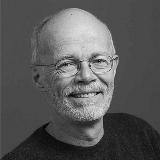About
John Taylor is a mycologist with four decades of experience in phylogenetics and the evolutionary biology of fungi.
He is professor of the graduate division at Berkeley and a principal investigator on projects investigating the ecology of Coccidioides immitis, the agent of the human fungal disease coccidioidomycosis (also known as Valley Fever). He is also interested in the role of fungal communities in drought tolerance in the globally important cereal crop plant Sorghum bicolor, and is researching the role of microbes in allergy by developing better and more economical approaches to sampling indoor air.
Awards
- DeBary Medal, International Mycological Association, 2018
- President, International Mycological Association, 2010-2014
- Distinguished Mycologist, Mycological Society of America, 2008
- Fellow, American Association for the Advancement of Science, 2000
- Fellow, American Academy of Microbiology, 1998
Relevant Publications
Gao C., Montoya L., Xu L., …Taylor J.W. (2019). Strong succession in arbuscular mycorrhizal fungal communities. The ISME Journal, 13, 214-26. DOI: https://doi.org/10.1038/s41396-018-0264-0
Taylor J.W., Barker B.M. (2019). The endozoan, small-mammal reservoir hypothesis and the life cycle of Coccidioides species. Medical mycology, 57, S16-S20. DOI: https://doi.org/10.1093/mmy/myy039
Sylvain I.A., Adams R.I., Taylor J.W. (2019). A different suite: The assemblage of distinct fungal communities in water-damaged units of a poorly-maintained public housing building. PLoS ONE, 14(3), e0213355. DOI: https://doi.org/10.1371/journal.pone.0213355
Taylor J.W., Branco, S., Gao, C., Hann-Soden, C., et al. (2017). Sources of fungal genetic variation and associating it with phenotypic diversity. Microbiol Spectrum, 5(5),DOI: 10.1128/microbiolspec.FUNK-0057-2016.
Gladieux, P., Wilson B.A., Perraudeau, F., …Taylor J.W. (2015). Genomic sequencing reveals historical, demographic and selective factors associated with the diversification of the fire‐associated fungus neurospora discreta. Molecular Ecology, 24(22), 5657-75. https://doi.org/10.1111/mec.13417
Support Us
CIFAR is a registered charitable organization supported by the governments of Canada and Quebec, as well as foundations, individuals, corporations and Canadian and international partner organizations.
